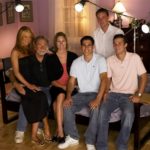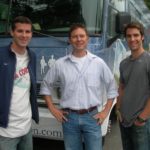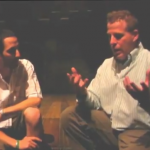Interview: How To Become the CEO of a Nonprofit Organization
At 22 I was just beginning medical school. I didn’t really know what I wanted to do for sure when I went to college. I just knew that I wanted to do something that would have an impact of improving people’s lives. I tried a variety of different majors and ended up doing a major in psychology because I got very interested in behavior and what motivates people.
I taught I would do a doctoral degree in psychology. But then in talking to people I realized that medicine gave me a broader range of options and would still allow me to work in a field that improve people’s lives.
I went into medical school and again wasn’t quite sure where that would take me. But I realized it was a practical way you could make a contribution back to society. Eventually I decided to do pediatrics as my specialty. I really enjoyed working with children. I also knew along the way that I wanted to do something that would allow me to work internationally as well. So pediatrics is an area, particularly in poor parts of the world where children are dying unnecessarily. Having a focus that allowed me to work both on issues of children in this country, but also potentially make a contribution internationally. And because I enjoyed working with children and found that gratifying.
But also along the way, I had begun to realize that when you work in clinical medicine, your focus is really the individual. But I knew that I wanted something that also allowed me to focus on how to change societies. And more broadly, focus on populations. I began to hear more about public health and I realized that public health was the intersection between people and medicine in societies. So when you are focused on clinical medicine, your patient is the individual. When you look at public health, your patient is the population.
I migrated into thinking of public health as a marriage between society, policy, the broader world, and my chosen field of health and medicine. I pursued a degree in public health and as a result of that I ended up at the center for disease control.
When I went to CDC it was the mid eighties. I did my pediatric in the 70’s.
For me, it was a real motivator to be one of the few African American women pursuing the path I was on. Part of my commitment to society and trying to make a contribution probably comes from the fact that I am African American and I am a woman. I grew up in a time in the mid sixties and early seventies, during the Civil Rights era. During the movement for independence of countries around the world who had been formerly colonized during Vietnam. There was a growing concern around women’s rights. So all of those issues, whether it’s civil rights, women’s rights, anti-apartheid, all of those issues were things very important to my early conceptualization of driving for social change. For me, as an African American woman, I think that was a real motivator to do some of things that I did. I feel a strong commitment to those issues around social justice and addressing inequities. Whether they’re gender inequities, race or ethnic inequities, or poverty and social economic inequities.
I don’t always think about the fact that I’m a pioneer until after the fact. My life, I’ve been very fortunate to have incredible opportunities to use my life in a way that is very fulfilling, but also makes a contribution.
I think less about myself and more about my goals and what I’m trying to accomplish. I think if I thought too much about myself in these roles I’d probably get pretty nervous and have a lot of questions and doubts. But I try to focus on what I hope to accomplish. When you think about things bigger than oneself, I think you keep your focus on your mission and on your passion. Again, I feel very fortunate. It’s incredibly gratifying to me to know that in the positions I’ve been in, I probably have been able to make a difference in people’s lives. And in many people’s lives for the issues I’ve worked on. That’s what keeps me going and that’s what keeps me motivated.
They call me the Energizer Bunny around here. I keep long hours and keep a very demanding pace. But again, it’s because I feel very committed to the things I’m working and a lot of passion. It’s exciting. It’s really exciting when I go out to the places where we have programs and see that we’re changing people’s lives in very tangible ways. People can talk about what it’s meant to them and their families to participate in the programs that CARE supports. It’s just inspiring. That’s what keeps me inspired.
I was at the Gates Foundation for close to five years.
I’m stubborn. I’m pretty persistent about accomplishing the things that mean something to me. I work hard. I have a lot of dedication to the work that I’m committed to. And I have fun. I enjoy what I do. I think you have to enjoy what you’re doing because no amount of money or external rewards are going to make you successful if you’re not having fun at what you’re doing and really feel passionate about it. For me, that’s been a guiding principal in the reasons why my life has evolved in certain ways. The things I feel deeply about, but along the way I also have to enjoy what I’m doing.
I would say to the 22 year old Helene to just make sure that you are true to yourself. That you stay connected to the things that brought you to where you are now. And that you make sure that you take time for fun. I think often times young people are very focused on their career and don’t think about how to keep a whole life. Unless you do keep a whole life, which means staying close to family and friends and enjoying the rest of life, if you don’t keep the balance and you don’t keep the perspective, it’s very easy to look up 20 or 30 years later and wonder where you lost yourself. I think it’s important to never lose yourself in the process. Keeping balance, staying close to family and friends and the people who love you and remember where you came from to begin with.
I think there are times when I look up and realize that five years have gone by and they’re a blur. I probably haven’t taken the time to enjoy the moment as much. I think remembering to do that, whether it’s keeping a journal so you can look back and remember events clearly. But, just making sure to take the time for the total life balance.






